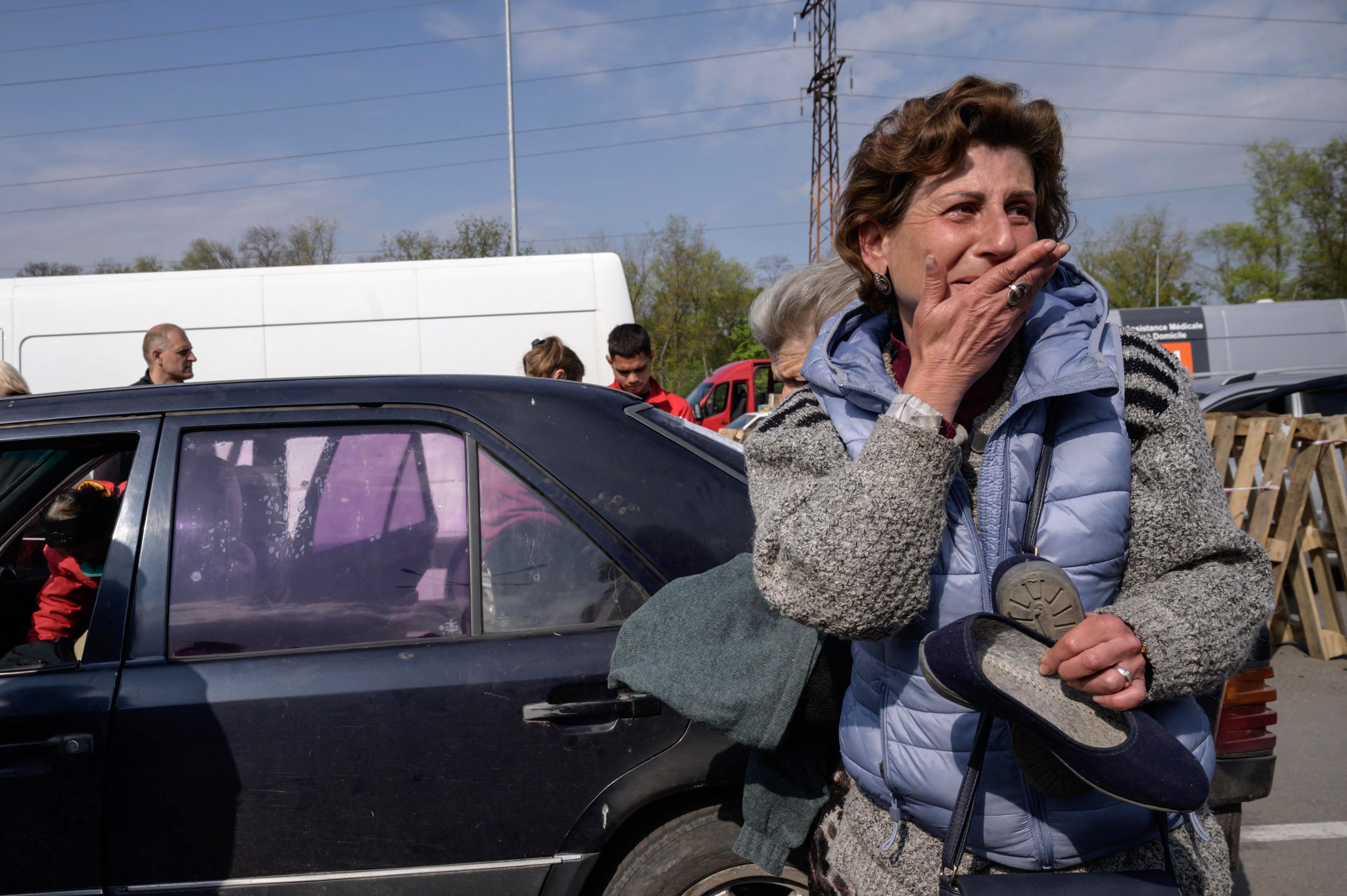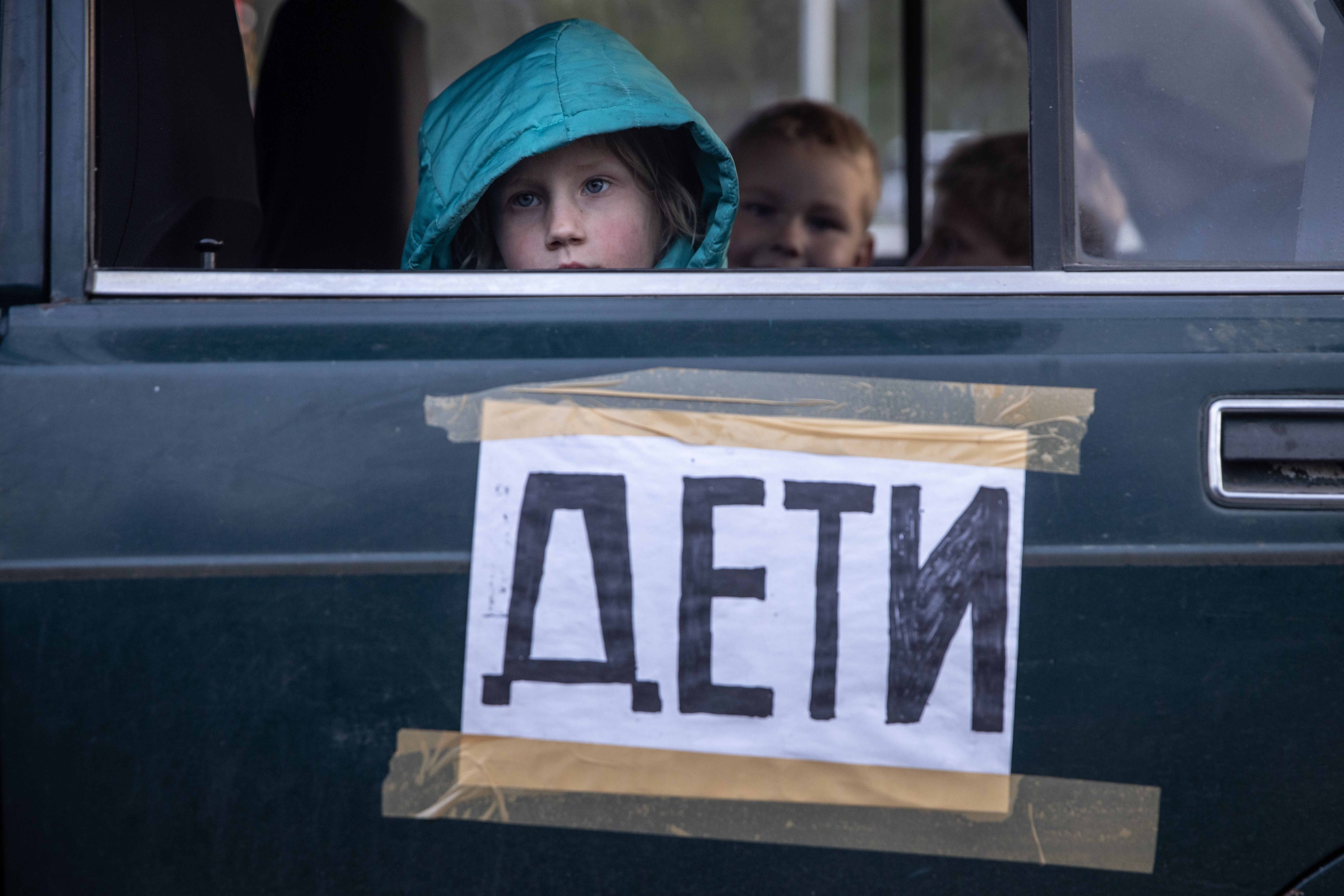They describe scenes of "terror," "hell" and total destruction. The reports quoting Mariupol residents who recently evacuated or escaped the Ukrainian port city are beginning to give a glimpse of the the terrifying conditions civilians experienced under Russia's weeks of intense bombardment there.
The latest: A group of more than 100 civilians who were sheltering in the maze of underground tunnels in Mariupol's Azovstal steel plant evacuated on Sunday to the Ukrainian-controlled city of Zaporizhzhia, according to Ukrainian officials.
- Others appear to have been taken to areas controlled by Russian-backed separatists, per AP. Some, meanwhile, managed to flee the city on their own.
- But hundreds of civilians are believed to still be in the steel plant, Ukraine's final foothold in the destroyed city, and tens of thousands of others remain in the city itself, AP reports.
The big picture: Russia has demanded the remaining Ukrainian fighters — believed to number about 2,000 — to surrender, though so far they have refused. Russia continued its attacks on the plant late Sunday into Monday, per CNN.
- Additional evacuations, supported by the UN and International Committee of the Red Cross, are expected Tuesday, the Mariupol City Council said on Telegram.
- While the civilian death toll in Mariupol is unknown, Ukrainian officials have said thousands may have been killed.
"We didn't see the sun for so long"
Natalia Usmanova, who evacuated the steel plant, described to Reuters the "terror" residents experienced in Mariupol.
- "You just can't imagine what we have been through — the terror," Usmanova said in the village of Bezimenne, an area under control of Russian-backed separatists. "I lived there, worked there all my life, but what we saw there was just terrible."
- "When the bunker started to shake, I was hysterical, my husband can vouch for that: I was so worried the bunker would cave in," she said.
- "We didn't see the sun for so long."
Yelena Aytulova, another evacuee who spoke to Reuters in Bezimenne, described how those who sheltered in the steel plant survived.
- "For a month we were eating — over 40 of us — six tins of food. We boiled two buckets of soup out of them and that was it for the whole day," she said.
- David Beasley, director UN World Food Program, told CBS' "60 Minutes" on Sunday that UN officials had been "blocked" from delivering food to starving Ukrainians in besieged cities, including Mariupol.

"Hell exists"
Mariupol Mayor Vadym Boychenko told the BBC on Saturday that "the citizens who left the city say that hell exists, and it's in Mariupol."
- "[People] are waiting, they are praying for a rescue. … It's difficult to say how many days or hours we have to save their lives," Boychenko said.
Yelena Gibert, a psychologist who arrived in Zaporizhzhia with her son on Monday, told the New York Times there's a feeling of "hopelessness and despair" in Mariupol.
- Some “are starting to talk of suicide because they’re stuck in this situation,” she said.

"There is no Mariupol"
Daniil, a resident of Mariupol who escaped to Zaporizhzhia in his battered car, told the BBC "it's been difficult, tough, frightening."
- "I lived on a tugboat in the port in Mariupol. We couldn't even raise our heads. It was so scary to be there," he said.
- "Mariupol used to have a wonderful park. It was a prospering city. Now it's all gone."
Mariupol resident Yaroslav Dmytryshyn told AP he couldn't believe his family survived.
- Dmytryshyn drove into the city of Zaporizhzhia in a car full of children and signs taped to the back window, reading "children" and "little ones," per AP.
- He said the steel plant in Mariupol was "ruined" and "the factory is gone completely.”
- "There is no Mariupol whatsoever," he added. "Someone needs to rebuild it, and it will take millions of tons of gold.”
Go deeper:







